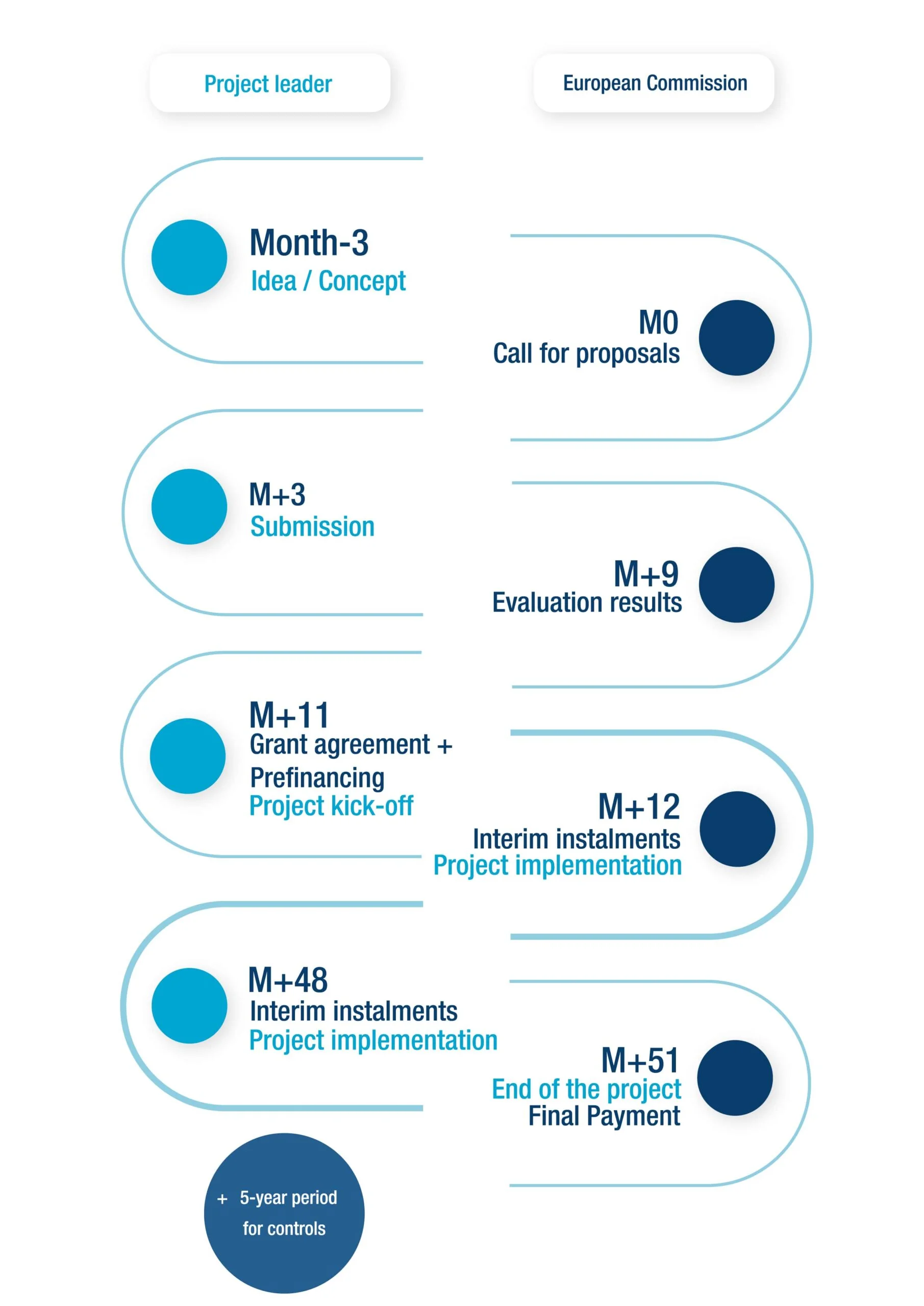+33(0)1 42 54 60 64 | contact@welcomeurope.com
+33(0)1 42 54 60 64 | contact@welcomeurope.com
The LIFE programme supports the EU in achieving its European Green Deal ambitions. LIFE aims to transform the EU into a fair and prosperous society with a modern, resource-efficient and competitive economy, where net emissions will be zero by 2050 and economic growth will be decoupled from resource use. The programme aims to achieve these goals, while protecting, conserving and enhancing nature across the continent and safeguarding the health and well-being of citizens from environmental and climate impacts.
5.4 billion euros
All beneficiaries
Grant – Co-financing
LIFE – EU financing instrument for environment and climate action – Grants linked to the financing of EU environment and climate action policy
Created in 1992, the LIFE programme is the EU’s financing instrument for environment and climate action. The LIFE programme is divided into two sub-programmes, one for the environment (representing 75% of the overall financial envelope) and one for climate action (representing 25% of the envelope).
Objectives
Structure
Priorities
Actions financed


| Cookie | Duration | Description |
|---|---|---|
| cookielawinfo-checbox-analytics | 11 months | This cookie is set by GDPR Cookie Consent plugin. The cookie is used to store the user consent for the cookies in the category "Analytics". |
| cookielawinfo-checbox-functional | 11 months | The cookie is set by GDPR cookie consent to record the user consent for the cookies in the category "Functional". |
| cookielawinfo-checbox-others | 11 months | This cookie is set by GDPR Cookie Consent plugin. The cookie is used to store the user consent for the cookies in the category "Other. |
| cookielawinfo-checkbox-necessary | 11 months | This cookie is set by GDPR Cookie Consent plugin. The cookies is used to store the user consent for the cookies in the category "Necessary". |
| cookielawinfo-checkbox-performance | 11 months | This cookie is set by GDPR Cookie Consent plugin. The cookie is used to store the user consent for the cookies in the category "Performance". |
| viewed_cookie_policy | 11 months | The cookie is set by the GDPR Cookie Consent plugin and is used to store whether or not user has consented to the use of cookies. It does not store any personal data. |
